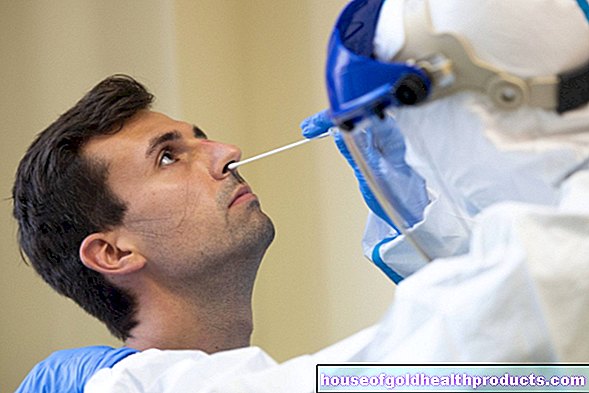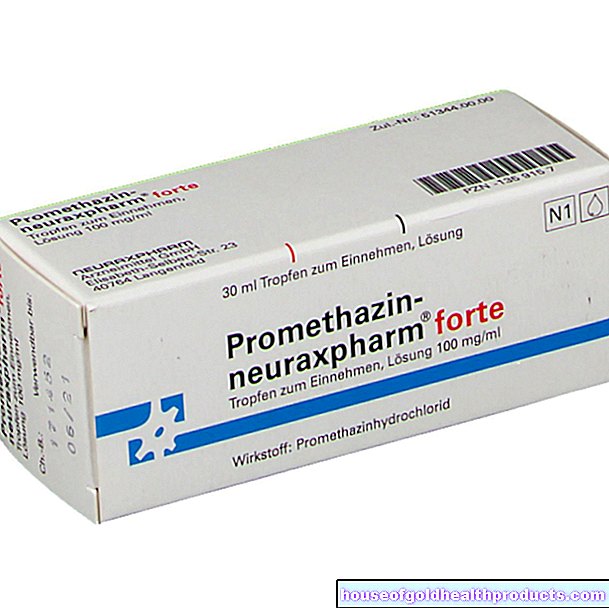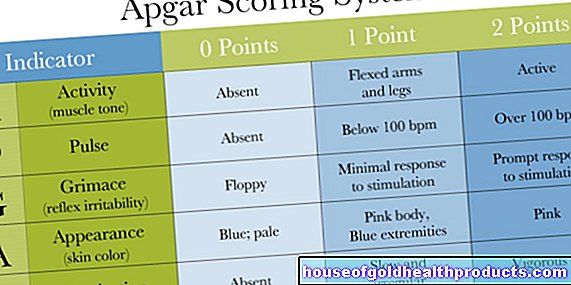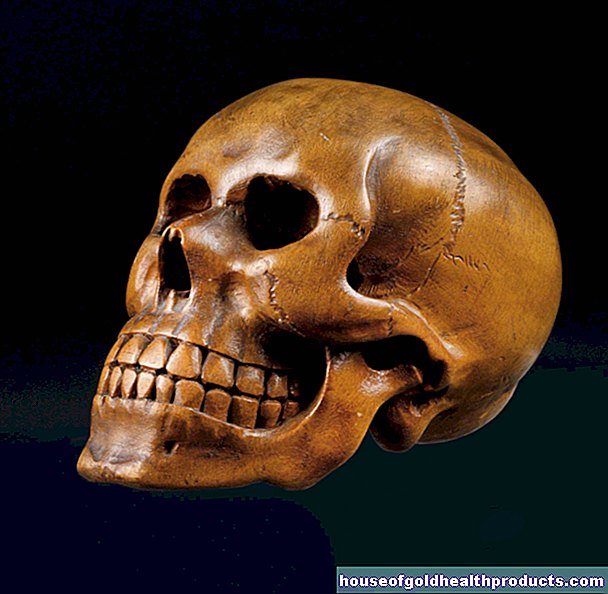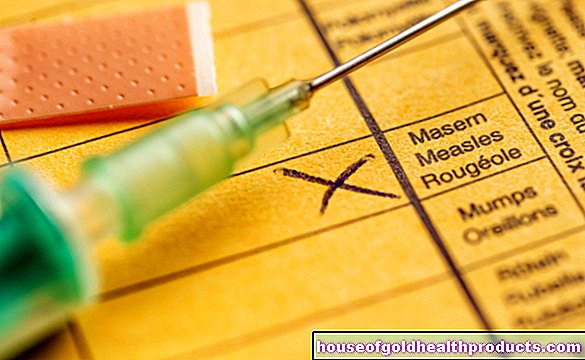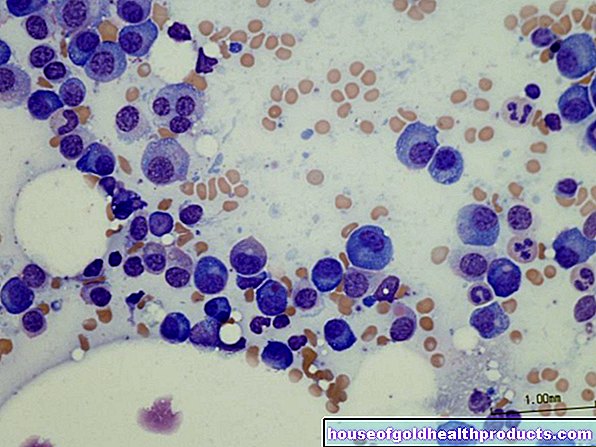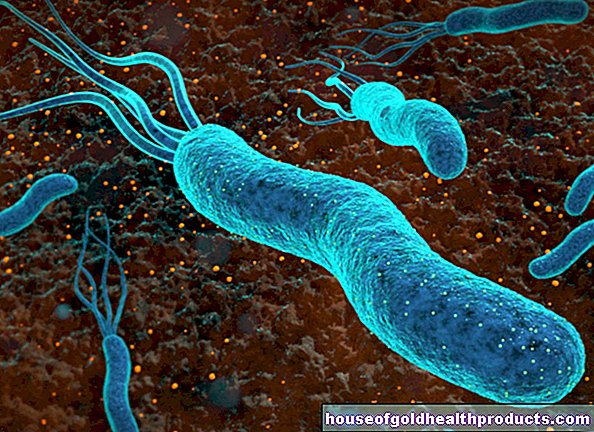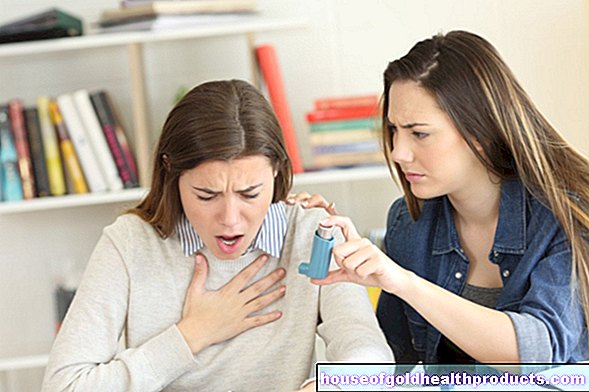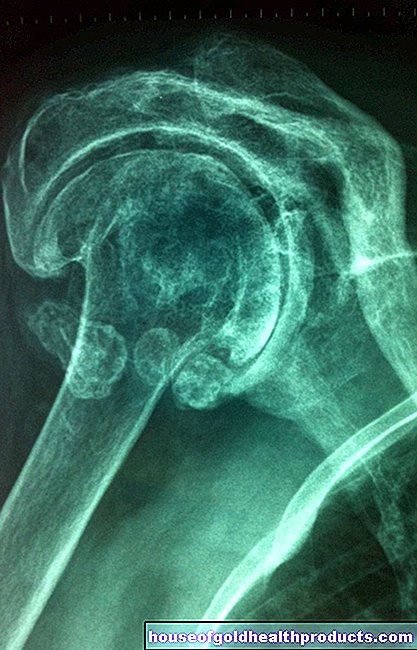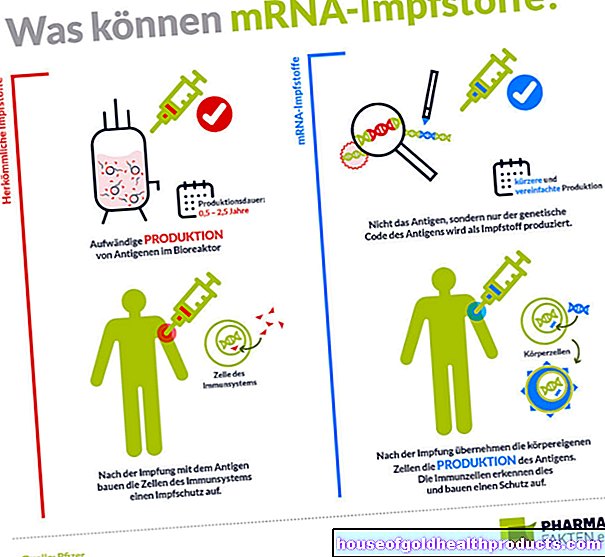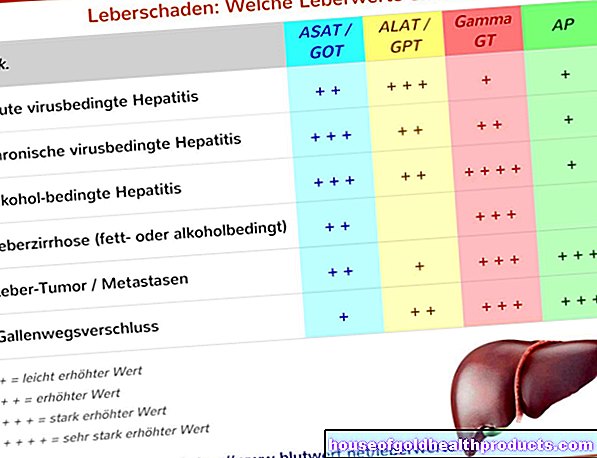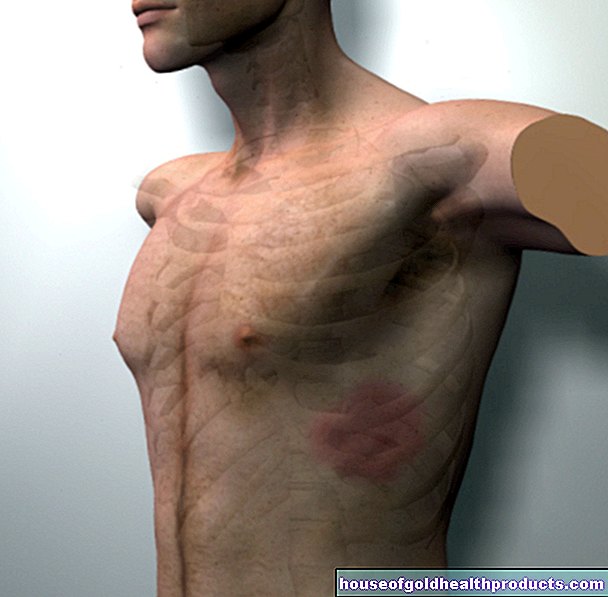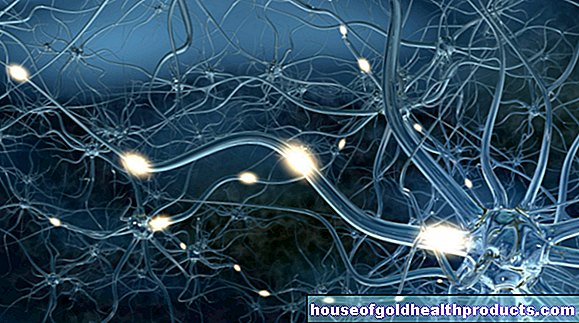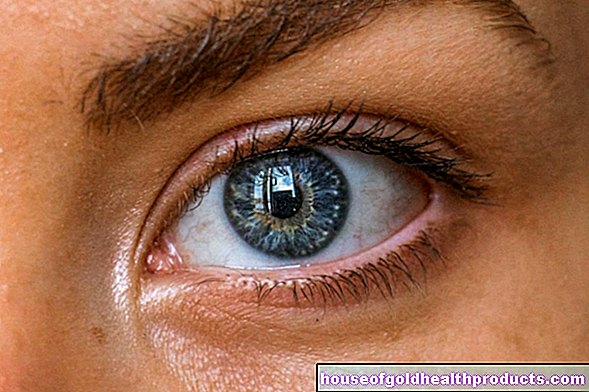Depression of old age
Updated onJulia Dobmeier is currently completing her master's degree in clinical psychology. Since the beginning of her studies, she has been particularly interested in the treatment and research of mental illnesses. In doing so, they are particularly motivated by the idea of enabling those affected to enjoy a higher quality of life by conveying knowledge in a way that is easy to understand.
More about the experts All content is checked by medical journalists.Age depression is often not recognized and therefore not treated. Dejection, social withdrawal, and loss of interest are rashly viewed as natural side effects of aging - and not as symptoms of depression. Even in old age, therapy for depression can significantly improve quality of life - and even save lives. Read everything you need to know about old-age depression here.
ICD codes for this disease: ICD codes are internationally recognized codes for medical diagnoses. They can be found, for example, in doctor's letters or on certificates of incapacity for work. F53F39F92F33F34

Old age depression: description
If people from 65 years of age suffer from depression, doctors speak of age-related depression. Along with dementia, this is the most common mental illness in older people.
For some people, the depression develops at a young age and then continues with age. In other cases, the disease first appears in old age. Women are - both younger and older - at greater risk of becoming depressed than men.
With the growing proportion of older people in society, depression in old age will also become more common in the years to come.
Differentiation between dementia and old age depression
Concentration and memory difficulties as well as language problems can occur in the context of depression as well as dementia. Differentiation is therefore very difficult. For a successful treatment, the differentiation between dementia and old age depression is of great importance. A few key features will help identify the symptoms:
In contrast to age-related depression, which can appear suddenly, the symptoms of dementia begin insidiously and only get worse over time. Another distinguishing feature is that people with old age depression often complain about their condition, while dementia patients tend to deny the memory problems. In addition, people with depression do not lose their bearings, as is typical for dementia patients. If the patient takes antidepressants, the symptoms usually improve significantly.
Old age depression: symptoms
As in younger people, depression manifests itself in old age with symptoms such as depressed mood, joylessness, listlessness and loss of interest. However, because these central symptoms are often superimposed by other (physical) complaints in older people, depression in old age is often not easy to recognize.
For example, people with old-age depression often focus on physical complaints such as pain, gastrointestinal problems, increased fatigue, sleep disorders, loss of appetite or dizziness - symptoms for which physical illnesses are often sought as a trigger, although they can also be psychosomatic. Difficulty concentrating, which often occurs with depression, is also often misinterpreted in older patients - namely as a sign of the onset of dementia.
Age depression: causes and risk factors
The causes of depression in old age (as well as depression at a younger age) are seen in an interaction between biological and psychosocial factors. One therefore assumes a multifactorial development of the disease:
Studies have shown that some people have a genetic susceptibility (genetic vulnerability) to depression. In combination with various stress factors, a depressive illness can break out.
Such stress factors can be of various kinds. This includes, for example, the loss of a partner and other close contacts, which is not uncommon in old age. In addition, with increasing age, the body and mind are less productive, so that it can easily become overwhelmed in everyday life - for example because they lose their independence and are increasingly dependent on help. This can also contribute to the development of depression in old age.
The transition from working age to retirement is also a major challenge for many people: the daily routine is a thing of the past. Many feel no longer needed.
In old age, drugs often contribute to depression - cardiovascular and Parkinson's drugs, for example. Older people in particular are often dependent on taking various drugs due to various health problems.
In addition, there are many interactions between depression and physical diseases such as cardiovascular diseases (e.g. stroke), rheumatic diseases and cancer. Of particular importance - especially in old age - is the connection between depression and organic brain diseases, which in addition to strokes also include Parkinson's, Alzheimer's and other dementias.
Examinations and diagnosis
The depression of old age is not immediately recognizable even for experts - especially since patients often go to the doctor due to physical complaints. Depression is then quickly overlooked, for example because symptoms such as insomnia, tiredness and listlessness are seen as normal signs of aging. Depression of old age is also easily mistaken for dementia or a natural grief reaction (such as after the death of a partner).
However, a wrong diagnosis leads to wrong treatment and the sufferer remains under pressure. A detailed diagnosis by a doctor is therefore particularly important. The first point of contact is the family doctor. If age depression is suspected, he will refer the patient to a psychiatrist or psychotherapist. This can clarify whether an age depression is actually present.
Diagnostic steps
The first diagnostic step is a comprehensive doctor-patient consultation to collect the medical history (anamnesis). The doctor asks about the exact symptoms, any previous or underlying illnesses and the use of medication. Some preparations can have a negative effect on mood. In addition, the doctor is interested in the general situation of the patient (living alone? Loss of partner? Etc.).
Physical exams are used to rule out organic disease as the cause of the symptoms. For example, blood tests and examinations of the brain using EEG (electroencephalography) or MRI (magnetic resonance imaging = magnetic resonance imaging) are important.
There are special questionnaires, such as the Geriatric Depression Scale (GDS), to distinguish old age depression from other diseases.
Old age depression: treatment
Once the diagnosis of old-age depression has been established, the doctor will talk to the patient about an individually appropriate therapy. Basically, all those affected should be offered psychotherapy. In the case of severe old age depression, drug treatment with antidepressants is also useful.
Antidepressants
Choosing the right antidepressant is sometimes a little more difficult for older people: Older people often take many other medications (e.g. heart and blood pressure medication) and have a higher risk of side effects. The doctor must therefore take the possible interactions and side effects of various antidepressants into account particularly carefully when planning drug therapy for old-age depression.
Very often serotonin reuptake inhibitors (SSRIs) such as sertraline, fluoxetine or paroxetine are prescribed for depression in old age. In some studies they showed an overall better tolerance in older patients than so-called "tricyclic antidepressants" (TCAs such as nortriptyline or clomipramine) - also common drugs for depression. However, there are also studies that found no differences between SSRIs and TCAs with regard to tolerability in older people.
When choosing a suitable antidepressant, the decisive factor is what the individual patient can tolerate better - especially in connection with possibly existing other diseases (such as heart disease) and medications taken against them.
Patients should take prescribed antidepressants exactly as directed by their doctor. If new complaints occur during therapy or if existing complaints change negatively, the doctor should be informed. It may be necessary to adjust the dose or switch to another preparation.
psychotherapy
In psychotherapy, depression and its accompanying symptoms are treated in discussions and exercises with a therapist. This has also been shown to be effective for depression in old age. Older people should therefore not shy away from psychotherapy. If necessary, the therapeutic procedure is adapted to individual characteristics. For example, patients who are restricted in their mobility often have the option of the psychotherapist coming to them or the psychotherapy sessions being held online.
There are various psychotherapeutic methods that can be used to treat age-related depression. Most studies and the most reliable proof of effectiveness are for cognitive behavioral therapy and problem-solving therapy. The patient and doctor discuss together which method is most suitable in each individual case.
Further therapeutic measures
Sometimes other or further therapeutic measures make sense. For example, light therapy can be helpful if the depressive symptoms follow a seasonal pattern (as in "winter depression").
In the event of a severe, life-threatening or treatment-resistant depressive episode, electroconvulsive therapy (electroconvulsive therapy) can be considered. During this process, brief electrical pulses are applied to the patient's brain under anesthesia.
In individual cases, further measures can support the treatment of depression in old age (as well as in younger years), for example physical training (provided there are no medical reasons against it), occupational therapy (for meaningful activity in everyday life) or outpatient psychiatric care.
Old age depression: disease course and prognosis
Age depression should definitely be treated. Not only to prevent becoming chronic (chronification) and to improve the quality of life of those affected. Treatment is also urgently advised because depression can be life-threatening in old age - even more than in younger years. In particular, bed-restraint, reduced fluid intake and the significantly increased risk of suicide, especially in older men, must be taken into account in the treatment of old-age depression.
Therefore, if you experience symptoms such as listlessness, rapid fatigue and loss of interest in old age, you should definitely consider the possibility of depression and seek medical help. This gives you the chance to recognize and treat age depression at an early stage.
Tags: tcm vaccinations prevention